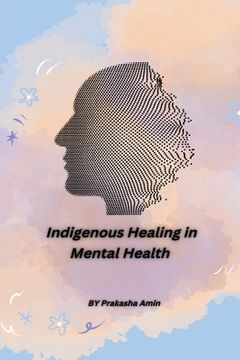Reseña del libro "Indigenous Healing in Mental Health (en Inglés)"
The concept of Indigenous Healing has been regarded as a non-invasive medical practice for centuries. Considering a country like India, belief in the spiritual cause of mental illness is highly prevalent among rural and urban population. These beliefs focus around spirit possession, witchcraft, breaking of religious taboos, divine retribution, the capture of the soul by a spirit, and many more. In order to overcome such obstacles, people approach healers for a miracle solution before resorting to modern healthcare. Though healers play a significant role in the treatment of mental health problems, they lack knowledge about mental illness which delays the recovery of Mentally ill from the illness. Acknowledging the possible role of healers in the field of mental health, there is a need for providing mental health knowledge to the healers to facilitate better community mental health care. The present study is conducted in the Udupi district of Karnataka State, covering three talukas i.e., Udupi, Kundapur, and Karkala. The primary objective of the research is to assess the knowledge and attitude of traditional healers on mental health. The study also attempts to understand the perception and experience of the beneficiaries of indigenous healing. The opinion of the mediator about the role of indigenous healing in mental health is also included as one of the objectives of the study. The study adopts the One- Group Pretest- Posttest Experimental Research Design, and Proportionate Stratified Sampling to select Garodi temples and the Snowball Sampling technique to select 100 spirit dancers from 100 Garodi temples. A modified and validated mental health knowledge scale is used to assess the knowledge of the healers, and the CAMI scale is used to assess the attitude of the healers towards the mentally ill. The 400 beneficiaries, i.e., patients who have undergone indigenous healing (N=200) and the family members who accompany the patients (N=200) are interviewed based on the snowball sampling technique, and the interview schedule is used to yield the response. The opinion of the 06 mediators is collected based on the Interview Guide. To enhance the mental health knowledge of the healers, a mental health intervention module is developed, and knowledge is imparted during the intervention period, and the effectiveness of the intervention is measured during the post-intervention phase. The result discloses that most of the healers (40 per cent), participated in the study are middle-aged (31-40 years); 83 per cent reside in rural areas and the majority are Kola Patris (52 per cent). The pre-test and post-test mental health knowledge and attitude were measured and found that the overall knowledge mean score (31.38) is higher in the post-test result compared with the overall pre-test mean score (23.18), and gain in the mental health knowledge is 35.38 per cent, whereas the overall post-test attitude mean score of the healers is 137.97, which is higher compared with the overall pre-test attitude mean score of the healers (126.30), and the overall gain in attitude score is 9.24 per cent. The findings pertaining to refereeing cases to other professionals indicates that it has increased from 07 per cent to 26 per cent.

